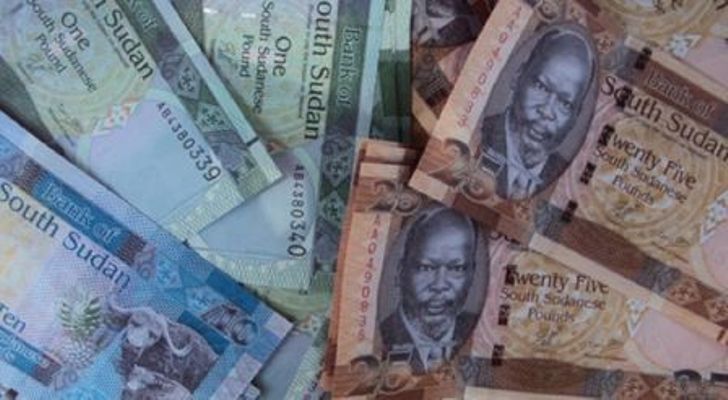S. Sudan economic crisis affect families in neighbouring countries

January 11, 2017 (JUBA) – The weakening South Sudanese pound (SSP) means families in neighbouring East African countries are dwindling. Some families have not paid rent for months and children are out of schools.
“It is a tough situation that families face in Uganda and Kenya – some families don’t afford food items, far from money for rent and school fees,” said David, who family is Kampala, Uganda.
South Sudan Pound lost about 80% of it value since ministry of finance and central bank floated the exchange rate against United States dollars in December 2015. $1 sales for 110 SSP on Wednesday in Juba black market. The central bank has not auctioned the U.S. in recent weeks, leading to scarcity. For families in South Sudanese employees paid in local currency, black market is the source of their black market.
“In Elegu (Uganda border town with South Sudan near Nimule), 1,000 SSP is exchanged for only 25,00 Ugandan shillings,” said David, preferring to use his first name only.
“Unless you exchange 20,000 SSP per month, you will not be able to sustain your family abroad,” he said, adding that he is struggling to pay rent and move his family back to South Sudan despite insecurity fears that forced him to send his wife and three children to Uganda.
1,000 Kenyan shillings now exchange for 900 SSP, a substantial increase from 1,000 Kenyans shillings to 300 SSP early last year.
Some families are shifting to refugees’ camps.
“It is expensive to transport the family from Nairobi to Juba and the nearest cheapest location becomes Kakuma refugee camp in northern Kenya,” said Johnson Oldi, a South Sudanese whose family had lived in a Kenyan town for three years.
“Unless you are working for an international organization that pays in U.S dollars, there is no way one can continue to pay rent and school fees for money that finish in few weeks,” added Johnson.
The number of South Sudanese families in Uganda and Kenya has dwindled, he added.
“The situation is even worse for junior (government) employees. Whether you bring your family to South Sudan or remain in Uganda or Kenya, the situation is the same – worse,” said David Deng, a grade 7 government employee. Deng receive close to 2,000 SSP monthly, just about 20 dollars if exchanged at the current black market exchange rate.
Most South Sudan send families to neighboring countries of Kenya and Uganda for medical, education and security reasons. However, South Sudanese currency has been in free fall for the last 12 months and painted a bleak future for the work youngest nation.
(ST)
